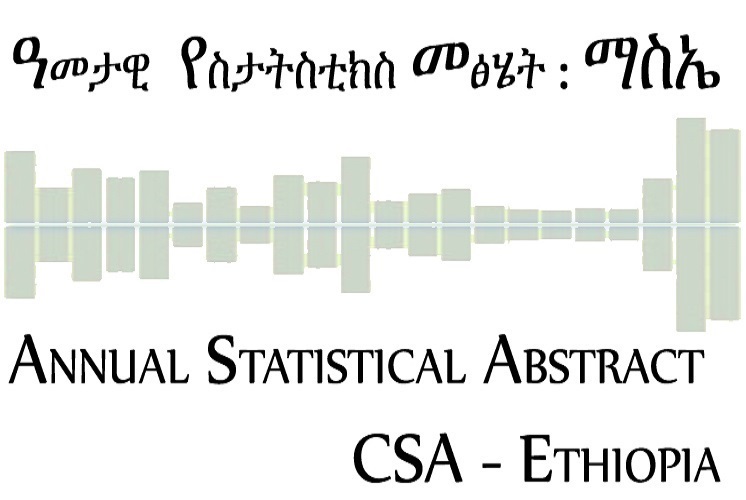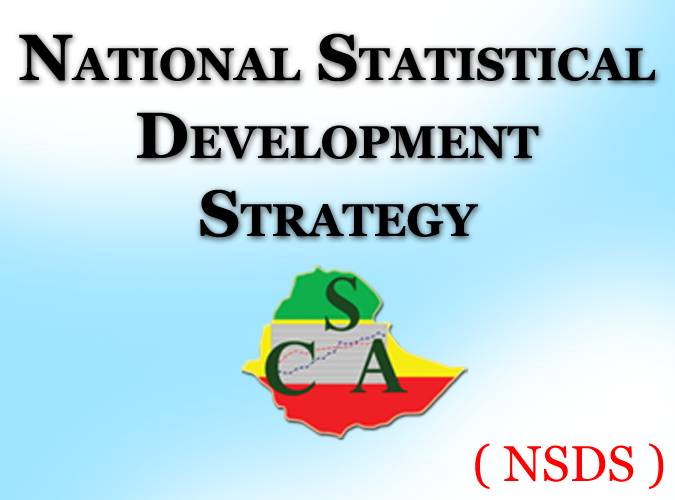The statistical practice initiated at the time was organizationally set up within the then Ministry of Commerce, Industry and Tourism. But in 1963, the regular statistical activities became the mandate of a newly structured and autonomous organization called Central Statistical Office (CSO). At the beginning, CSO was responsible to the Ministry of Planning and Development and thereafter to the Planning Commission up until 1964. Then, CSO was reestablished in 1972 by proclamation number 303/1972 and was responsible for the then Planning Commission. Finally, CSO was restructured and became responsible to the Council of Ministers by the name of Central Statistical Agency, CSA, on March 9 th, 1989 . Furthermore, CSA became responsible to the Ministry of Economic Development and Cooperation on October 1996 and since September 2001 to the Ministry of Finance and Economic Development.
The major mandates and responsibilities of the CSA, among others, are:
Collect statistical data through censuses, sample surveys, administrative records and registrations as well as process, evaluate, analyze, publish and thereby disseminate the results and also serve as the country’s information center;
Prepare short, medium or long-term national statistical program for the collection, processing, evaluation and analysis of data required for socio-economic development planning and upon approval execute the program and projects within the given budget;Undertake studies and researches with respect to statistical methods and encourage the utilization of the results;
Provide appropriate capacity building basic short term training to personnel’s engaged in statistical activities, for Federal Ministries, Regional States, NGO’s and Private Sector;
Issue directives and programs and see its implementation to improve the national statistical system and to avoid duplication of statistical activities;
Lay down the system for the collection, compilation, classification and flow of statistical data. Determine the type and particulars of statistical data to be collected as well as the productivity, and monitor the execution of the same.
CSA has accomplished a lot in making available a relatively organized and reliable data in the country. Specifically when we see the accomplishments of CSA over time, it shows a change of direction from use of administrative records to compile data in external trade, retail trade, and other modern sector activities as well as undertaking ad-hoc surveys and specific area censuses to broad based scientific sample survey and censuses. Particularly, the 1980’s and 1990’s signify an important period in the development of statistical work in Ethiopia . Under the umbrella of National Integrated Household Survey Program (NIHSP), a number of rural and urban household surveys were conducted producing essential information for economic and social management.



